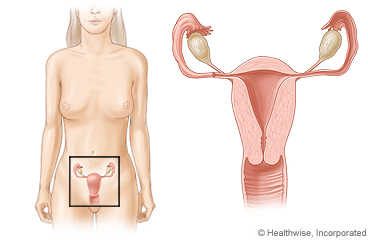Learning About Future Pregnancy and Diabetes

How can you plan for pregnancy when you have diabetes?
Women who have diabetes are more at risk for having miscarriages. And they are more likely to have babies with birth defects. This is mainly true if blood sugar is not kept in the target range during the early part of pregnancy.
You can take steps before you are pregnant to help manage your diabetes. This will help make sure that both you and your baby stay healthy.
Things to do
- Check your blood sugar often. This is so you will know if your blood sugar is in your target range.
- Get your blood sugar in your target range. The target range for women who are not pregnant but have diabetes is an A1c level of 7.0% or less or as close to this as can be safely reached.
- Start taking a folic acid supplement. Ask your doctor the amount that is right for you.
- See a doctor for an exam. Discuss the medicines and supplements you take. Talk about your diabetes history or other concerns you have.
- Keep track of your menstrual cycle. This helps you know the best time to try to get pregnant.
- Take only the medicines your doctor says are okay.
- Eat a healthy diet.
- Exercise regularly. That will help you handle the demands of pregnancy, childbirth, and recovery.
Things to limit or avoid
- Avoid non-steroidal anti-inflammatory drugs (NSAIDs), such as ibuprofen or aspirin, unless your doctor tells you to take them.
- Avoid caffeine, alcohol, cannabis, and illegal drugs.
- Do not smoke. Smoking can harm your baby. And it increases the chances that you will have problems from diabetes. If you need help quitting, talk to your doctor about stop-smoking programs and medicines. These can increase your chances of quitting for good.
What else should you think about?
Before trying to get pregnant:
- Have your doctor check for problems from diabetes, such as eye or kidney disease. When you are pregnant, these problems can get worse.
- Get any vaccines you might need. This will help prevent infections such as rubella or measles that can cause birth defects or miscarriage.
- Talk with your doctor about whether to have screening tests for diseases that are passed down through your family (genetic conditions).
- See your dentist. Take care of any dental work you may need.
What if you think you might be pregnant?
- You can use a home pregnancy test as soon as the first day of your first missed menstrual period.
- As soon as you know you're pregnant, check with your doctor. At your first prenatal visit you will get information on how to care for yourself and your growing baby.
Where can you learn more?
Go to https://www.healthwise.net/patientEd
Enter B946 in the search box to learn more about "Learning About Future Pregnancy and Diabetes".
Current as of: March 1, 2023
Author: Healthwise Staff
Medical Review:Adam Husney MD - Family Medicine & Kathleen Romito MD - Family Medicine & Femi Olatunbosun MB, FRCSC - Obstetrics and Gynecology
